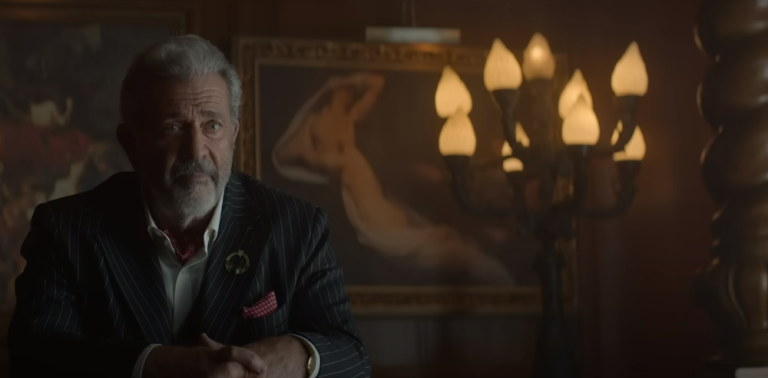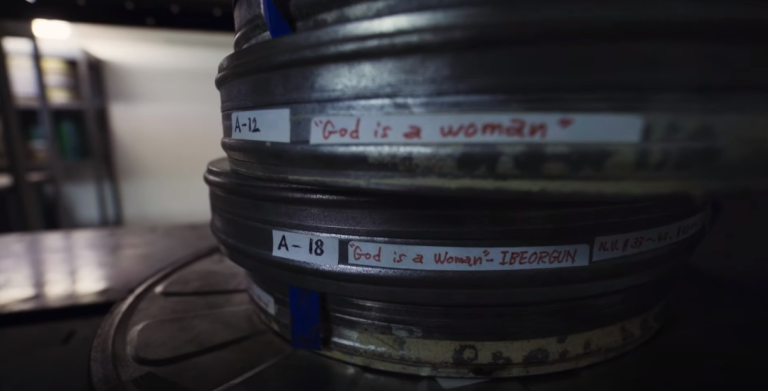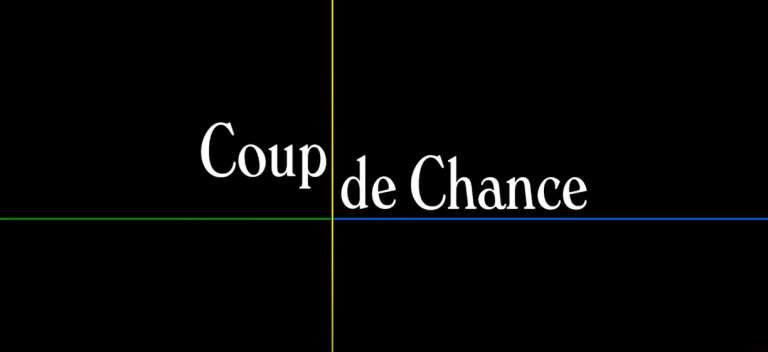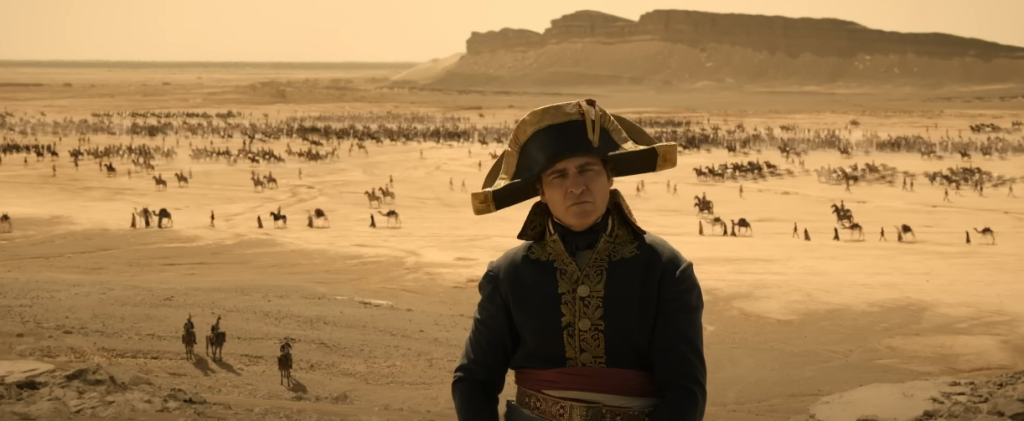
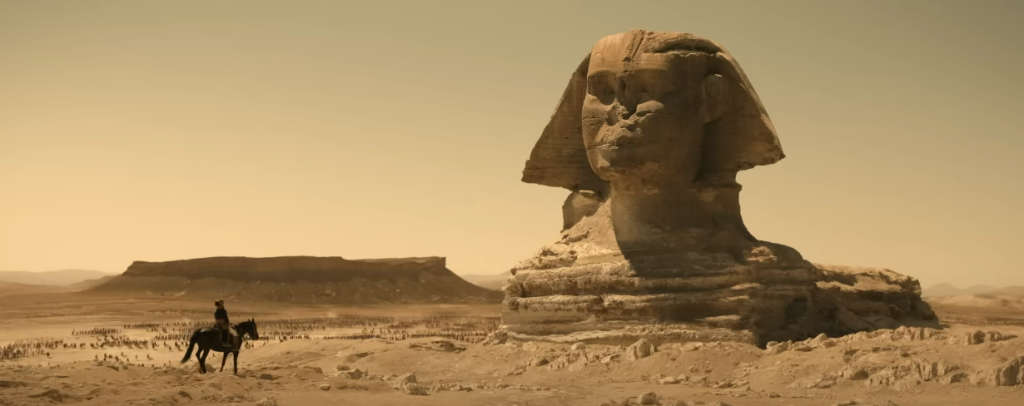
“Napoleon,” directed by the esteemed Ridley Scott, embarks on an epic cinematic journey delving into the tumultuous life of one of history’s most iconic figures. Through a tapestry of passion, power, and tragedy, the film paints a vivid portrait of a man whose ambition reshaped the course of nations.
From its outset, “Napoleon” introduces us to the young military commander Napoleon Bonaparte, portrayed with remarkable depth by Joaquin Phoenix. As the narrative unfolds, we witness Napoleon’s meteoric rise, propelled by his fateful encounter with Marie Josephe Rose Tascher, whose aristocratic allure captivates him. Their tumultuous romance serves as the catalyst for Napoleon’s ascension to the throne as Emperor of the French, a journey fraught with both triumphs and tribulations.
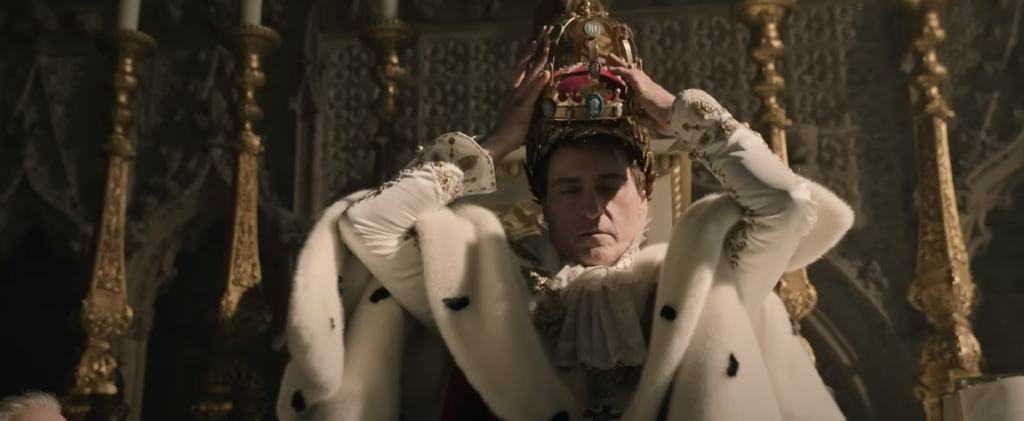
However, amidst the opulence of power, “Napoleon” does not shy away from exploring the darker facets of his reign. The film poignantly portrays Napoleon’s union with Empress Josephine, brought to life with raw emotion by Phoenix, and the challenges they face, particularly Josephine’s struggles with infertility. This thread adds layers of complexity to the narrative, shedding light on the personal sacrifices made in the pursuit of greatness.
Under Ridley Scott’s masterful direction, “Napoleon” transcends traditional historical retelling to become a cinematic spectacle. The cinematography, characterized by breathtaking vistas and meticulous attention to detail, transports audiences to the heart of Napoleonic Europe. From the grandeur of imperial courts to the chaos of battlefields, Scott’s lens captures the essence of Napoleon’s era, immersing viewers in its beauty and brutality.
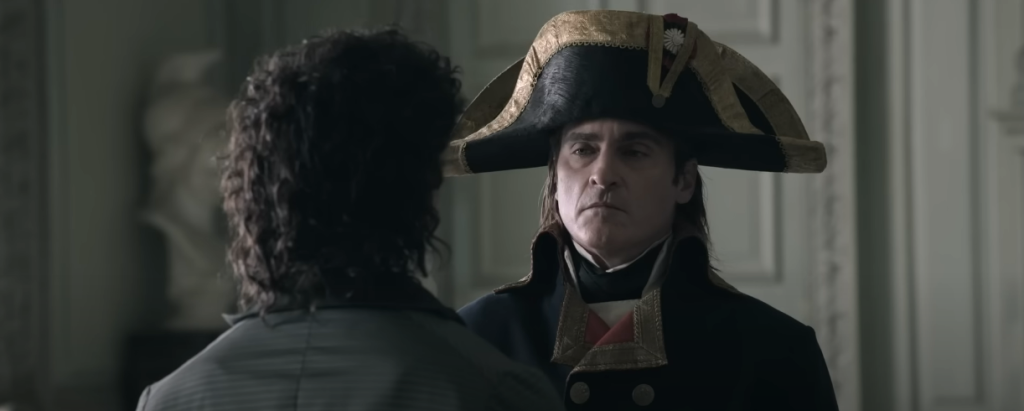
Furthermore, Scott’s direction ensures a nuanced portrayal of Napoleon, balancing his brilliance as a strategist with the flaws that ultimately contribute to his downfall. Through subtle insights into Napoleon’s psyche, the film challenges viewers to reconsider their perceptions of this enigmatic figure.
While “Napoleon” maintains a brisk pace, driving the narrative forward with urgency, there are moments where deeper exploration is warranted. Certain sequences may feel rushed, leaving thematic incompleteness and a longing for more profound insights into Napoleon’s character and relationships.
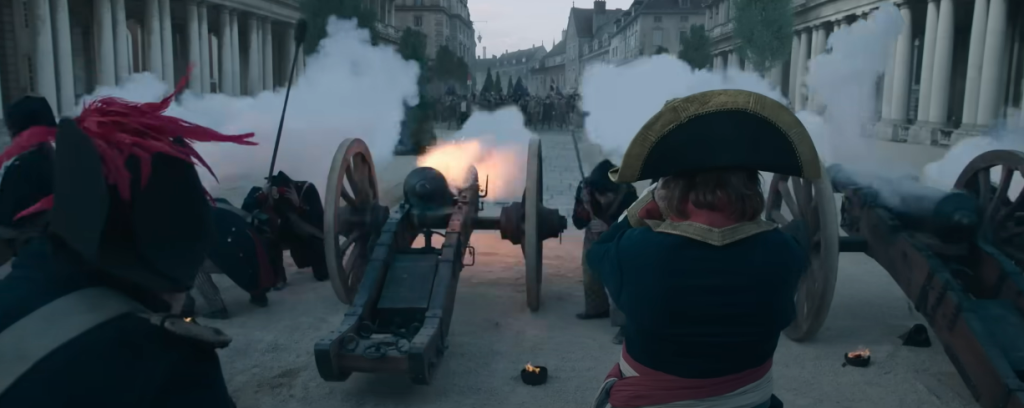
Joaquin Phoenix’s performance as Napoleon is a tour de force, capturing the charisma and tyranny synonymous with the historical figure. Vanessa Kirby shines as Empress Josephine, navigating the complexities of love, power, and heartbreak with grace and depth. However, some characters are sidelined, lacking the development necessary for a comprehensive evaluation.
In terms of production quality, Ridley Scott’s meticulous attention to historical accuracy is commendable. Each frame is a visual spectacle, transporting viewers to Napoleonic Europe with authenticity and grandeur. However, the film’s ambitious scope occasionally outstrips its ability to fully realize every aspect of Napoleon’s story, leaving certain sequences feeling rushed or underdeveloped.
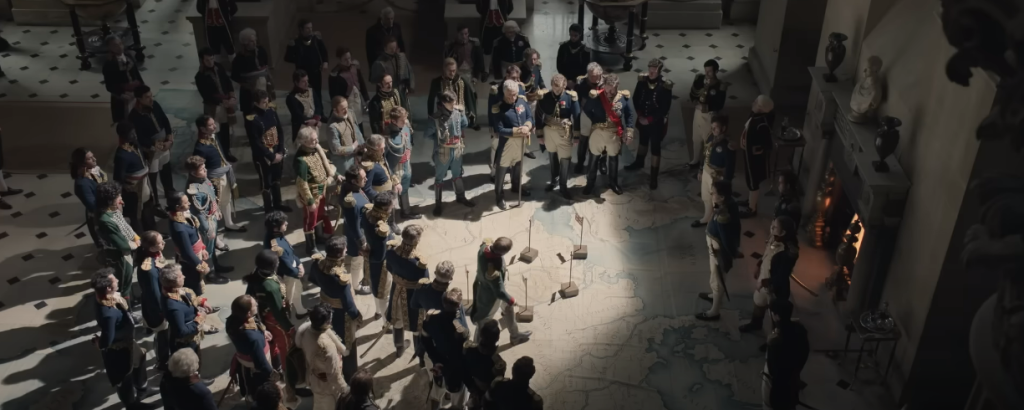
Despite its flaws, “Napoleon” remains a captivating cinematic journey through the life of a historical figure shrouded in myth and mystery. Joaquin Phoenix and Vanessa Kirby deliver standout performances, elevating the film with their nuanced portrayals. While it may not achieve cinematic perfection, “Napoleon” sheds light on the intricacies of power, passion, and human frailty, leaving an indelible mark on the genre.
| Aspect | Description |
|---|---|
| Narrative | – A cinematic odyssey through Napoleon’s life, exploring passion, power, and tragedy. – Depicts Napoleon’s rise to Emperor fueled by romance with Josephine. |
| Performances | – Joaquin Phoenix shines as Napoleon, capturing his charisma and tyranny. – Vanessa Kirby adds depth to Josephine’s character with emotional complexity. |
| Production Quality | – Meticulous attention to historical accuracy in sets, costumes, and cinematography. – Immersive visuals transport viewers to Napoleonic Europe. |
| Pacing and Sequences | – Brisk pace drives the narrative forward but occasionally lacks depth in certain sequences. – Some events unfold hastily, leaving thematic incompleteness. |
| Flaws and Imperfections | – Despite stunning visuals and performances, narrative impact may feel lacking at times. – Rapid pace may leave viewers longing for deeper exploration of characters. |
| Overall Verdict | – “Napoleon” emerges as a compelling cinematic journey despite its imperfections. – Captures the grandeur and tragedy of Napoleon’s life. |

